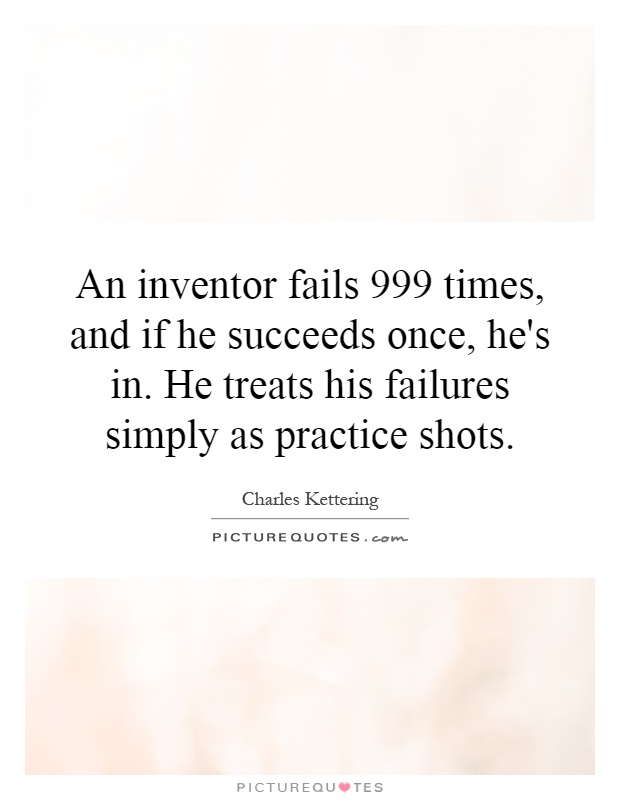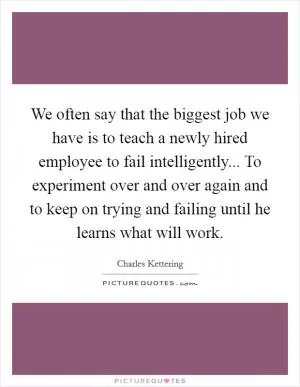An inventor fails 999 times, and if he succeeds once, he's in. He treats his failures simply as practice shots

An inventor fails 999 times, and if he succeeds once, he's in. He treats his failures simply as practice shots
Charles Kettering, an American inventor, engineer, and businessman, is often credited with the quote, "An inventor fails 999 times, and if he succeeds once, he's in. He treats his failures simply as practice shots." This quote perfectly encapsulates Kettering's approach to innovation and problem-solving throughout his career.Kettering was a prolific inventor who held over 140 patents in his lifetime, including the electric starter for automobiles, Freon refrigerant, and the first practical diesel-electric locomotive. However, his path to success was not without its challenges. Like many inventors, Kettering faced numerous setbacks and failures along the way. But instead of becoming discouraged by these failures, he viewed them as opportunities to learn and improve.
Kettering understood that failure was an inevitable part of the invention process. He believed that each failure brought him one step closer to success, as it allowed him to refine his ideas and techniques. Kettering was known for his perseverance and determination, never giving up on an idea until he had exhausted all possible avenues.
One of Kettering's most famous failures was his attempt to create a new type of engine for the automobile industry. After years of research and development, Kettering's engine failed to meet the performance standards required for mass production. Instead of giving up, Kettering used this failure as a learning experience, taking what he had learned and applying it to his next project.
Kettering's willingness to embrace failure and learn from his mistakes ultimately led to his success as an inventor. By treating his failures as practice shots, Kettering was able to push the boundaries of innovation and create groundbreaking technologies that revolutionized industries.












 Friendship Quotes
Friendship Quotes Love Quotes
Love Quotes Life Quotes
Life Quotes Funny Quotes
Funny Quotes Motivational Quotes
Motivational Quotes Inspirational Quotes
Inspirational Quotes